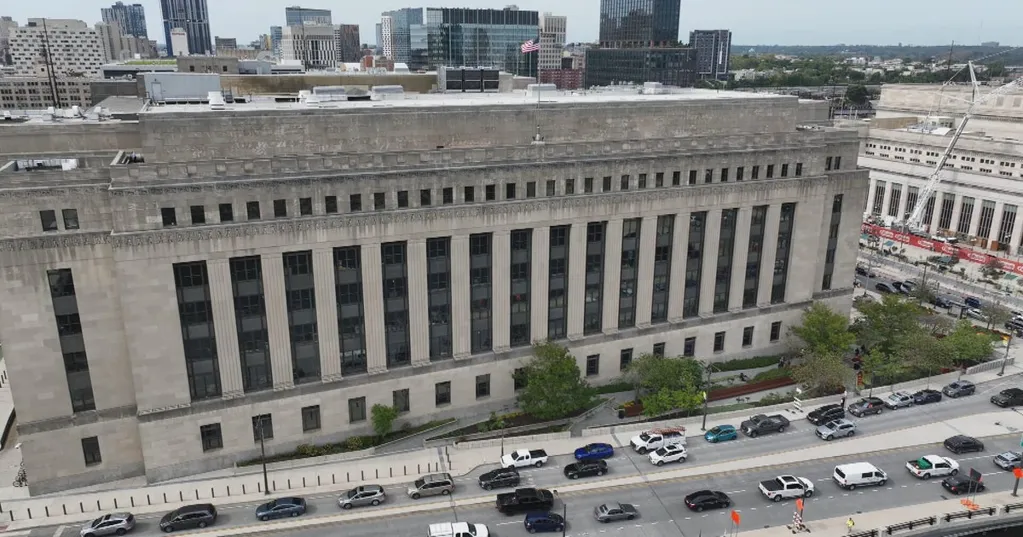The looming federal government shutdown could affect thousands of workers in Philadelphia and around Pennsylvania, a union leader said.
Despite top Congressional leaders meeting at the White House Monday night, Republicans and Democrats have yet to come together on a deal to keep the government funded and are inching closer to a federal government shutdown.
A shutdown could begin at 12 a.m. Wednesday morning.
That would bring big disruptions to the federal workforce around the country, from furloughs to employees being forced to work while not being paid until the shutdown ends. But this stalemate brings a new round of anxieties for federal workers. The Trump administration, in a memo, has told federal agencies to consider reduction-in-force notices, known as RIFs, if a shutdown comes to pass.
"I've never seen the federal government threaten to fire federal employees because Congress has failed to fund the government," said Richard Gennetti, a national representative for the American Federation of Government Employees.
The RIFs would amount to layoffs for federal employees. The memo sent by the White House Office of Management and Budget tells agencies to consider reduction-in-force notices for employees in programs, projects or activities that have discretionary funding that stops on Oct. 1 or that don't have any alternative sources of funding. It also says that employees should get RIF notices if they're in programs or projects "not consistent with the President's priorities."
The memo says RIFs would not be necessary if a shutdown were averted.
Gennetti says AFGE represents around 10,000 federal workers in the Philadelphia area and 40,000 in Pennsylvania. He says the union, the largest representing federal workers, believes the RIF notices would be illegal under these circumstances and that workers are being used as political pawns.
"It should be based on productivity and efficiency, not based on whim and retaliation and anger at some political party," Gennetti said. "Federal employees should never be a political football. And they have been way too many times."
At this point, it's unclear when or if layoffs would happen, which agencies would be affected, or how many federal workers could be let go. President Trump was asked outside the White House on Tuesday morning.
"Well, we may do a lot," Mr. Trump said.
Aside from potential layoffs, if a shutdown were to happen, CBS News estimates at least 494,000 would face furloughs. A Tuesday estimate from the Congressional Budget Office said that number could climb to more than 750,000.
Many other federal workers will stay on the job, including those in active-duty military, but not be paid until the shutdown ends. While workers will receive back pay, Gennetti notes that bills don't stop and expenses can add up as a shutdown drags on. He pointed to the last federal government shut down from December 2018 to January 2019.
"We had federal employees with jobs go on state welfare programs during the last shutdown in '18-19," Gennetti said. "We had people getting food stamps and other public assistance because they didn’t have a paycheck and needed money to survive."
At Philadelphia's IRS building, Alex Jay Berman, the National Treasury Employees Union Chapter 71 executive vice president, said he was told the Treasury Department will use Inflation Reduction Act funds to keep its employees paid for a week. After that, it’s unclear what will happen.
"We don’t know," Berman said. "We have no idea."
Berman says that uncertainty is weighing on federal workers, who just this year have already navigated previous rounds of buyouts, Department of Government Efficiency cuts, retirements and more.
"I gotta figure we're funding a large chunk of the pharmaceutical industry where it comes to blood pressure, anxiety, depression," Berman said. "But if you know federal employees, give them a hug. They kind of need it right now."
Gennetti says the union sees these RIFs, under these circumstances, as illegal and says they are working on ways to fight them in court if they are handed down.
